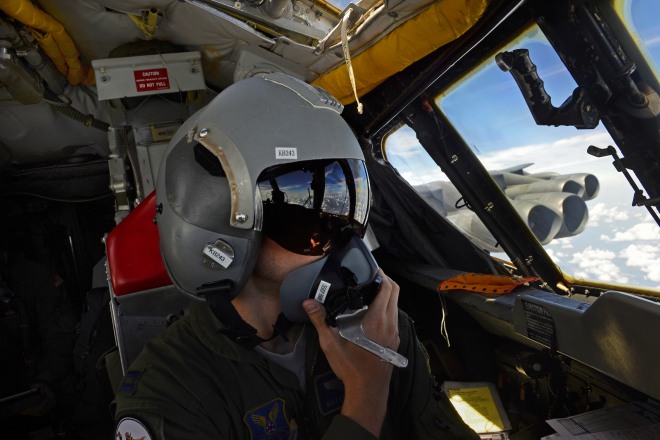On December 10 an American B-52 bomber flew within 2 miles of Cuarteron Reef in the Spratly Islands, one of several features being expanded and developed by China to enforce its territorial claims in the South China Sea.
Apparently this was a mistake and the flight plan was not supposed to come within 12 miles of any China-occupied feature.
From the Wall Street Journal:
An American B-52 bomber on a routine mission over the South China Sea unintentionally flew within two nautical miles of an artificial island built by China, senior defense officials said, exacerbating a hotly divisive issue for Washington and Beijing.
Pentagon officials told The Wall Street Journal they are investigating why one of two B-52s on the mission last week flew closer than planned to Cuarteron Reef in the Spratly Islands, an area where China and its neighbors have competing territorial claims. A senior U.S. defense official said that bad weather had contributed to the pilot flying off course and into the area claimed by China.
Beijing filed a formal diplomatic complaint with the U.S. Embassy in Beijing, which prompted the Pentagon to look into the matter.
The notion that a B-52, equipped with a full suite of navigation systems and piloted by experienced officers, could be knocked off-course by “bad weather” is highly dubious. But the more interesting question is why the Pentagon would disavow something that is stated U.S. policy. Just two months ago Ash Carter said that “the United States will fly, sail and operate wherever international law allows, as we do around the world, and the South China Sea will not be an exception.” The U.S. does not recognize Chinese sovereignty over any feature in the Spratly Islands, and plans to conduct 2 freedom of navigation exercises in the region per quarter. Even if the flight was a mistake the Pentagon should have denied it; any expression of regret to Beijing for the incident helps to legitimize its claims in the area.
The details and paradoxes of the this story suggest that a bureaucratic turf war between the State Department and the military over U.S.-China relations is spilling into the open.
Another possibility is that the Pentagon is getting its talking points from 1600 Pennsylvania Avenue. Wouldn’t want to upset the “delicate” and “complicated” relationship with Beijing, would we?


